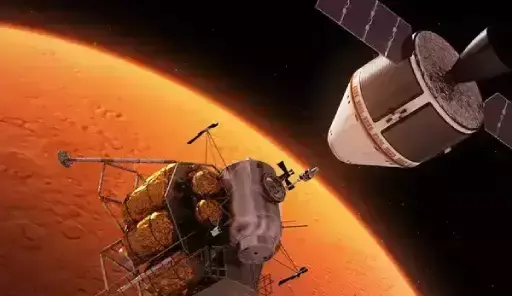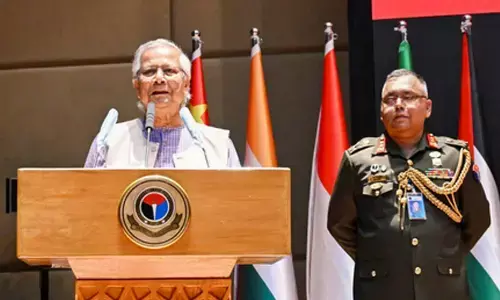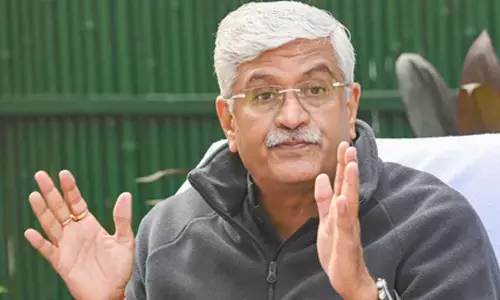ISRO's Shukrayaan-1 Mission Approved: India’s First Venus Orbiter to Launch in 2028

ISRO's Shukrayaan-1 Mission Approved: India’s First Venus Orbiter to Launch in 2028
ISRO's Shukrayaan-1 mission, India's first Venus orbiter, will launch in 2028 to study Venus' atmosphere, surface, and geology, advancing space research.
In a significant development for India's growing space capabilities, the Indian Space Research Organisation (ISRO) has received approval for its first mission to Venus, the Shukrayaan-1 mission. Set to launch in March 2028, the Venus Orbiting satellite will be tasked with investigating Venus' atmosphere, surface, and geological structures, offering India a critical opportunity to advance its space research efforts and deepen our understanding of one of Earth’s closest neighbors in the solar system.
What is Shukrayaan-1?
The Shukrayaan-1 mission will deploy a sophisticated spacecraft to orbit Venus, focusing on a detailed exploration of the planet’s dense atmosphere and volcanic surface. Venus, often referred to as Earth's "twin" due to its similar size and mass, has an extremely hostile environment, making it a compelling subject of study for planetary scientists. The mission aims to uncover valuable data about the planet’s surface features, including volcanic activity, and to gather insights on its thick, carbon-dioxide-heavy clouds.
Equipped with cutting-edge instruments like synthetic aperture radar, infrared, and ultraviolet imaging devices, the Venus Orbiting satellite will help scientists study Venus' weather patterns, geological activity, and atmospheric composition. The spacecraft will also provide critical data on the ionosphere, which is essential to understanding Venus' climate and its potential for harboring life in its upper layers.
Why is Shukrayaan-1 Special?
Previous missions to Venus have been limited in their spatial coverage, focusing only on certain regions such as the equator or the poles. The Shukrayaan-1 mission will provide uniform global coverage of Venus, generating a comprehensive dataset that will be invaluable for future space exploration. This mission is set to create detailed maps of Venus' winds, chemical abundances, and surface features, contributing to a new era of space research.
Unlike earlier missions, which focused on specific geographic regions of Venus, Shukrayaan-1 will offer data from a wider range of the planet, giving scientists the tools to study global phenomena. The data collected will be processed at the Indian Space Science Data Center (ISSDC) and shared with the global scientific community for further analysis.
Mission Details and Cost
The Shukrayaan-1 mission is projected to cost around Rs 1,236 crore and will be launched aboard the LVM-3, ISRO’s heaviest and most powerful launch vehicle. The spacecraft will be placed in an Elliptical Parking Orbit (EPO), with an altitude range of 170 km to 36,000 km, which will allow it to gather high-resolution data from multiple points across Venus.
The Potential for Discovering Life on Venus
While NASA has discounted the possibility of life on Venus, there is still ongoing debate about the existence of microbial life in the planet's upper atmospheric layers. These regions have conditions that, in some ways, resemble Earth’s surface, raising the possibility that life could exist in Venus’ clouds. The Shukrayaan-1 mission will investigate these atmospheric conditions in more detail, providing critical data on Venus' chemical composition and its potential for supporting life.
A New Era for India’s Space Program
The Shukrayaan-1 mission is just one part of ISRO's broader vision to expand India’s footprint in space exploration. Looking ahead, ISRO is also planning major missions like the Gaganyaan mission, which aims to send India’s first crewed mission into space, and the India space station, which is set to launch the first of its modules by 2028.
In addition, India's space research program has been ramping up with advancements like the INSAT 4 series satellites for better weather forecasting and communication capabilities. ISRO is also eyeing Mars exploration with upcoming missions that could extend India’s reach beyond Venus.
Chandrayaan-4 and Other Ambitious Plans
Another exciting milestone for ISRO is the Chandrayaan-4 mission, which is expected to be a collaborative effort between India and Japan. Unlike previous Chandrayaan missions, Chandrayaan-4 will attempt to land near the moon’s south pole, an area of great interest due to its potential water ice reserves. The mission will include a much heavier rover, weighing 350 kg, and if approved, it could be launched by 2030.
With these ambitious projects, ISRO is positioning itself as a leader in global space research and exploration. The India space station will also play a crucial role in advancing India's capabilities, providing a platform for scientific experiments and space exploration missions, including those targeting the Moon and Mars.
Looking Forward
As Shukrayaan-1 nears its 2028 launch, India’s space ambitions are rapidly expanding, with missions planned for the Moon, Mars, and beyond. The data gathered by the Venus Orbiting satellite will not only enhance our understanding of Venus but also contribute to the global scientific community’s knowledge of planetary science. With ongoing missions like Chandrayaan-4, Gaganyaan, and future explorations, ISRO is solidifying its place at the forefront of space research and exploration.

















